SPEAKERS


OUR CONFERENCE PARTNERS



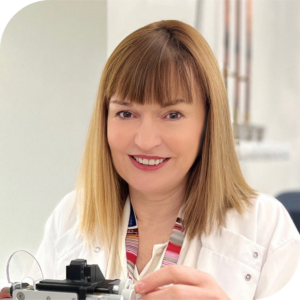
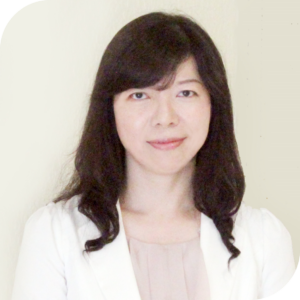
Yu-Ju Chen obtained her B.S. in Chemistry from National Taiwan University (1992) and Ph.D. degree at Iowa State University. After postdoctoral research work at the Ames Laboratory, Department of Energy, USA and National Tsing Hua University, she joined the Institute of Chemistry of Academia Sinica in 1999, served as the Director (2013-2021) and is currently a Distinguished Research Fellow. She also holds con-current adjunct professorships at few universities. With great passion to reveal disease network, Yu-Ju is one of the pioneering scientists in establishing mass spectrometry-based proteomics in Taiwan. In particular, she is interested in applying these tools for in-depth exploration of the proteome network in biology and diseases. She also contributes to academia services, serving as Associate Editor of “Analytical Chemistry” (since 2020), the most renown journal in analytical science. She has been the President of the Taiwan Proteomics Society (2009-2011), President of Taiwan Society for Mass Spectrometry (2011-2013), Vice President (2017-2019) of AOHUPO. She is the current President of Human Proteome Organization (HUPO, 2021-2022)-largest international society in proteomics, and Vice President (President-elect) of The Chemical Society located in Taipei (2021-2022). She is leading the Taiwan Cancer Moonshot project under the collaboration framework of the International Cancer Proteogenome Consortium (ICPC) led by National Cancer Institute, USA. The first study has revealed the pathogenesis and progression of non-smoking lung cancer patients in Taiwan (Cell, Cover Story). Her technology was also translated into a start-up company for cancer diagnosis (2018, JUN ZHI Biomedical Co., Ltd).
.
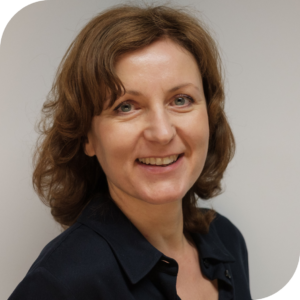
Jana Roithová graduated from Charles University in the Czech Republic (1998). Her Ph.D. thesis focused on reaction dynamics (2003), and she learned mass spectrometry techniques with Prof. Schwarz (Berlin). From 2007 to 2018, she was a lecturer and then a professor at Charles University. Since 2018, she has held a chair in spectroscopy and catalysis at Radboud University in the Netherlands. She develops techniques to study reaction mechanisms, focusing on reactive intermediates in metal-catalyzed reactions. Her research interests span from reaction mechanisms of organometallic reactions and mechanisms of small molecule activation to new reactivity concepts and reaction design. She is a member of the Royal Netherlands Academy of Arts and Sciences and received several prizes, e.g., the Ignaz L Lieben Award from the Austrian Academy of Sciences or the Rudolf Lukeš prize from the Czech Chemical Society.
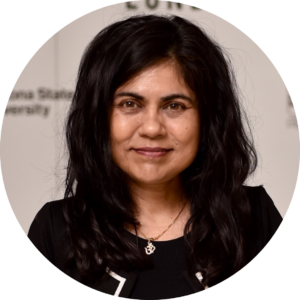
Professor Veena Sahajwalla is an internationally recognised materials scientist, engineer, and inventor revolutionising recycling science. She is renowned for pioneering the high temperature transformation of waste in the production of a new generation of ‘green materials’ at the UNSW Sustainable Materials Research and Technology (SMaRT) Centre, where she is Founding Director. Professor Veena is the inventor of polymer injection technology, known as green steel, an eco-friendly process for using recycled tyres in steel production. In 2018, Veena launched the world’s first e-waste MICROfactorieTM and in 2019 she launched her plastics and Green Ceramics MICROfactoriesTM, a recycling technology breakthrough. Professor Veena is the director of the ARC Industrial Transformation Research Hub for ‘microrecycling’, a leading national research centre that works in collaboration with industry to ensure new recycling science is translated into real world environmental and economic benefits. Professor Veena has also been appointed hub leader of the national NESP Sustainable Communities and Waste Hub. In 2021, Professor Veena featured in the ABC’s Australian Story and she was named the 2022 NSW Australian of the Year in recognition of her work. Professor Veena was named the 2022 Australian Museum Eureka Prizes winner for the Celestino Eureka Prize for Promoting Understanding of Science and was also awarded the Australian Academy of Technology and Engineering (ATSE) Clunies Ross Innovation Award. In 2023, Professor Veena was awarded the Engineering Australia Chemical College Chemical Engineer Achievement Award and the Good Design 2023 Women in Design Award.
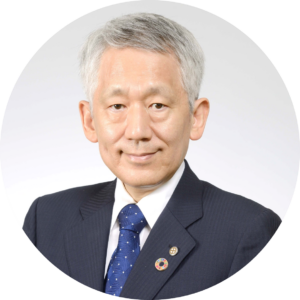
Koichi Tanaka is an Executive Research Fellow at Shimadzu Corporation in Japan. He completed his Bachelor’s degree in engineering at Tohoku University in 1983, prior to joining the Central Research Laboratory in Shimadzu Corporation. In 1985, he developed the technique known as soft laser desorption for the ionisation and mass spectrometric analysis of large biomolecules, particularly proteins. For this work he was awarded the Nobel Prize in Chemistry in 2002. Also in 2002, he received the Japanese Order of Cultural Merit Award. His continuing research interests focus on the development of novel mass spectrometry instrumentation and methods for the analysis of protein and carbohydrate structures, and their applications toward the early detection of protein-related diseases.

Professor Lisa M. Jones is the Chancellor’s Associate Endowed Chair of Chemistry and Biochemistry at the University of California San Diego. She received her PhD in Chemistry from Georgia State University. She received postdoctoral training in structural virology at the University of Alabama-Birmingham and in MS-based protein footprinting at Washington University in St. Louis. Her research is focused on extending the protein footprinting method fast photochemical oxidation of proteins (FPOP) coupled with mass spectrometry into complex model systems. Her lab has extended the method for in-cell analysis to provide structural information across the proteome. She has further developed the method for in vivo analysis in C. elegans, an animal model for human disease. Her lab aims to understand the biological causes of health disparities in cancer and other diseases. She also has a passion for increasing diversity in STEM and participates in several outreach initiatives to achieve this.

Dr. Yu Xia earned her B.S. (1999) in Chemistry from Lanzhou University, China, M.S. (2002) from Shanghai Institute of Material Medical, CASs, China, and Ph.D. (2006) under the supervision of Professor Scott A. McLuckey from Purdue University, USA. After postdoctoral training with Professor Graham R. Cooks at Purdue, Dr. Xia took positions as Assistant and Associate Professor at the Department of Chemistry, Purdue University (2009-2017). She joined Tsinghua University as a Professor of the Department of Chemistry in 2016. Dr. Xia utilizes radical chemistry as a unique approach to achieve enhanced bioanalysis via mass spectrometry. Her recent research emphasizes on developing lipidomic tools capable of resolving structural isomers. Her work has resulted in over 120 peer-reviewed publications and book chapters. She currently serves as the Associate Editor for the Journal of Mass Spectrometry and the Vice President for Diversity and Inclusion of the International Lipidomics Society.
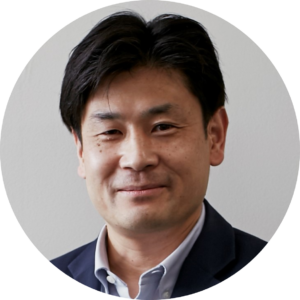
Dr. Makoto Arita received his Ph.D. from the Graduate School of Pharmaceutical Sciences, University of Tokyo in 1997. Currently he is a Dean of the Faculty of Pharmacy and a Professor of Physiological Chemistry and Metabolism at Keio University, and a Team Leader of RIKEN Center for Integrative Medical Sciences. Dr. Arita has experience leading multidisciplinary research teams as a principal investigator for “Biology of LipoQuality” a program project supported by JSPS Grant-in-aid for Scientific Research on Innovative Areas (FY2015-2020). He serves as an Executive Editor for the Progress in Lipid Research. Now he is leading JST-ERATO Lipidome Atlas Project (FY2021-2026) to pioneer the spatiotemporal biology of lipid diversity through a creation of the Lipidome Atlas, and to discover unknown molecules associated with important biological processes. Also, he is a Core Director of the Keio University World Premier International Research Center Initiative (WPI-Bio2Q) (FY2022-2032) to integrate human biology, microbiome research, and quantum computing to explore the foundations of healthy longevity.

Jesper Olsen studied analytical chemistry at University of Southern Denmark in the laboratory of Roman Zubarev. After this, he worked two years at MDS Proteomics as staff scientist before joining the laboratory of Matthias Mann as PhD student. He spent 4 years as a post-doctoral fellow at the Max Planck Institute for Biochemistry in Munich. In 2009, Jesper was recruited to head a research group at the newly established Novo Nordisk Foundation Center for Protein Research (CPR) at University of Copenhagen (UCPH). In 2012, he was promoted to vice director of CPR and in 2014 full professor at UCPH.
Jesper has made seminal contributions to the field of proteomics and high-resolution mass spectrometry, and pioneering quantitative phosphoproteomics technology and its application to study cell-signaling networks to answer outstanding questions in biology. His group is developing proteomics technologies and their work on offline peptide chromatographic fractionation in combination with fast online LC-MS/MS has enabled comprehensive analysis of human proteomes. Most recently, his group has worked on narrow-window DIA on the Orbitrap Astral mass spectrometer for high-throughput analysis of human proteomes with single cell resolution.

Dr. Renã A. S. Robinson, Professor of Chemistry at Vanderbilt University and inaugural Dorothy J. Wingfield Phillips Chair, received her B.S. in Chemistry with concentration in Business from the University of Louisville and Ph.D. in Analytical Chemistry from Indiana University under the mentorship of Professor David Clemmer. She developed proteomics methods to study aging in Drosophila (fruit flies) and continued working in aging as a Lyman T. Johnson Postdoctoral Fellow with Professor D. Allan Butterfield at the University of Kentucky. During this fellowship she began to focus on neurodegenerative disorders such as Alzheimer’s disease and received a UNCF/Merck Postdoctoral Fellowship. In 2009 she accepted a position as Assistant Professor of Chemistry at the University of Pittsburgh and in 2007 moved to Vanderbilt University as Associate Professor of Chemistry and the Dorothy J. Wingfield Phillips Chancellor’s Faculty Fellow. Renã is currently a Professor of Chemistry, Principal Investigator of RASR Laboratory, Faculty Head of House of Murray House, and actively supports the Vanderbilt Memory & Alzheimer’s Center, the Vanderbilt Institute for Chemical Biology and the Vanderbilt Brain Institute. She has a nationally and internationally recognized research program and is a leader in the field of proteomics for her work in aging, Alzheimer’s disease, and applications relevant to human health. Her laboratory is especially focused on advancing proteomics and lipidomics technologies to promote health equity in Alzheimer’s disease. Renã serves as the Immediate Past President of NOBCChE (National Organization for the Professional Advancement of Black Chemists and Chemical Engineers) where she was the 14th President from 2021- 2023 and led the organization through tremendous growth in membership, programming, funding, and overall outreach of URMs in STEM. She is currently the faculty advisor for the Nashville Student and Professional Chapter of NOBCChE, Co-Director for the Faculty ACCESS Program, and Board Member-at-Large for the US Human Proteome Organization.
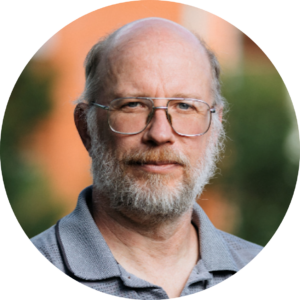
Dr. David Wishart (PhD Yale, 1991) is a Distinguished University Professor in the Departments of Biological Sciences and Computing Science at the University of Alberta. He also holds adjunct appointments with the Faculty of Pharmaceutical Sciences and with the Department of Pathology and Laboratory Medicine. He has been with the University of Alberta since 1995. Dr. Wishart’s research interests are very wide ranging, covering metabolomics, analytical chemistry, drug chemistry, natural product chemistry, molecular biology, protein chemistry and neuroscience. He has developed a number of widely techniques based on NMR spectroscopy, mass spectrometry, liquid chromatography and gas chromatography to characterize the structures of both small and large molecules. As part of this effort, Dr. Wishart has led the “Human Metabolome Project” (HMP), a multi-university, multi-investigator project that is cataloguing all the known chemicals in human tissues and biofluids. Using a variety of analytical chemistry techniques along with text mining and machine learning, Dr. Wishart and his colleagues have identified or found evidence for more than 250,000 metabolites in the human body. This information has been archived on a freely accessible web-resource called the Human Metabolome Database (HMDB). Dr. Wishart has also been using machine learning and artificial intelligence to help create other useful chemistry databases, such as DrugBank, FooDB and ContaminantDB and software tools (such as MetaboAnalyst, CFM-ID and BioTransformer) to help with the characterization and identification of metabolites, drugs, pesticides and natural products. Over the course of his career Dr. Wishart has published more than 500 research papers in high profile journals on a wide variety of subject areas.
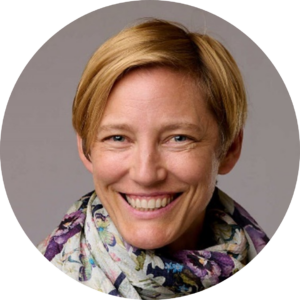
Dr Anne K Bendt is Principal Investigator and Deputy Director at SLING, the Singapore Lipidomics Incubator, an internationally renowned R&D program in lipid research and technology development, anchored at the National University of Singapore. She focusses on the translation of mass spectrometry-based technologies into clinical applications, primarily for lipids and small molecules.
Anne is further passionate about training and education, and has made substantial contributions to SLING’s various workshops and ‘ic lipid’ training courses. Internationally, Anne is co-instructor of ‘Lipidomics 101’, a short course for clinical lipidomics.
With clinical translation close to her heart, Anne serves on the ‘Metabolomics’ working group within the International Federation of Clinical Chemistry and Laboratory Medicine (IFCC). She further serves on the steering committee of ‘Clinical Lipidomics’ within the International Lipidomics Society (ILS) and as Associate Editor for ‘Journal of Mass Spectrometry and Advances in the Clinical Lab’ (JMSACL). Early 2019 Anne co-founded the global initiative ‘Females in Mass Spectrometry’ (FeMS), serving as Chair on the Board.
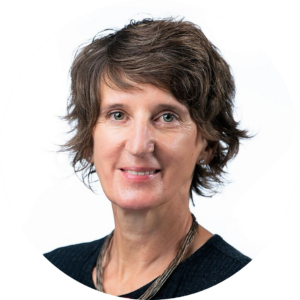
Ljiljana (Lili) Paša-Tolić received her PhD in Chemistry at the University of Zagreb in Croatia, was a postdoctoral fellow at Pacific Northwest National Laboratory (PNNL) and visiting scientist at the National High Magnetic Field Laboratory. Today she is a Laboratory Fellow and Lead Scientist at the Environmental Molecular Sciences Laboratory (EMSL) located at PNNL. She is known for her pioneering contributions to mass spectrometry, high-throughput, and top-down proteomics, including the development of transformative instrumentation and methods for biological and environmental research. Dr. Paša-Tolić has authored more than 300 peer-reviewed publications; presented at more than 150 seminars, conferences, and workshops; and served at numerous editorial and advisory committees. She was a founding organizer to the worldwide Consortium for Top-Down Proteomics (CTDP), a nonprofit corporation that works toward the goal of accelerating “the comprehensive analysis of intact proteins and their complexes” and is currently serving on the CTDP Board. She has mentored more than 50 students and post-doctoral fellows, and organized several conferences, workshops, symposia, and schools focused on various aspects of analytical chemistry, omics, and mass spectrometry. In 2019 and 2021, she was selected for the Analytical Scientist Top 100 Power List, recognizing her pioneering contributions to high resolution mass spectrometry for applications ranging from environmental ecology to medicine. In 2021, she was selected to join the Washington State Academy of Sciences (WSAS) and is currently serving on the WSAS Board.
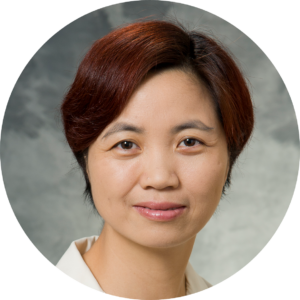
Ying Ge received a B.S. in Chemistry from Peking University and Ph.D. in Bioanalytical Chemistry from Cornell University with Professors Fred McLafferty and Tadhg Begley. Dr. Ge is currently a Vilas Distinguished Achievement Professor in the Department of Cell and Regenerative Biology and Department of Chemistry at the UW-Madison. Dr. Ge’s research is highly interdisciplinary that cuts across the traditional boundaries of chemistry, biology, and medicine. Dr. Ge has devoted her past twenty years in developing and applying top-down mass spectrometry-based proteomics to biomedical research. Recently her lab has developed a multi-pronged approach to address the challenges in top-down proteomics. By creatively integrating her expertise in mass spectrometry with cardiac biology, she has made significant contributions to understanding cardiac disease and regeneration. Dr. Ge has published over 170 papers with many in high impact journals such as Nature Methods, Nature Communications, PNAS, JACS and Circulation Research. She has received awards including the ASMS Biemann Medal (2020), HUPO Clinical and Translational Proteomics Sciences Award (2021), and HPLC Society Georges Guiochon Faculty Fellowship (2016), as well as The Top 100 Analytical Scientist Power List (on a global scale, 2019, 2021) and The Top 10 Analytical Scientist Power List (in North America, 2020).
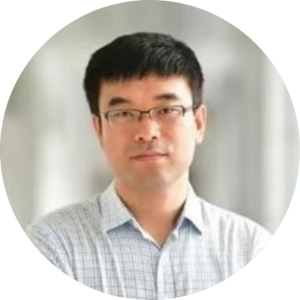
Dr. Ruijun Tian is a tenured professor in the Department of Chemistry at the Southern University of Science and Technology (SUSTech). He serves as the associate dean of the Guangming Advanced Research Institute of SUSTech, director of the Research Center for Chemical Biology and Omics Analysis. He received the National Science Fund for Distinguished Young Scholars. In 2008, Dr. Tian obtained his Ph.D. in Analytical Chemistry from the Dalian Institute of Chemical Physics, Chinese Academy of Sciences. He performed postdoctoral training at the Institute for Systems Biology in Ottawa and Lunenfeld-Tanenbaum Research Institute at the University of Toronto and Mount Sinai Hospital in Canada. In 2014, he was appointed as an Associate Professor in the Department of Chemistry at SUSTech and was promoted to a tenured Full Professor in 2020. His research focuses on proteomics related method development, as well as their applications in biomedical fields such as cell signaling and tumor microenvironment. He has published over a hundred papers in internationally renowned academic journals, including Nature, Nat. Chem. Biol., Cell Chem. Biol., Nat. Commun., PNAS, Mol. Cell. Proteomics, Anal. Chem. Dr. Tian serves as an editorial board member for Chinese Journal of Analytical Chemistry and Chromatography, and guest editor for Current Opinion in Chemical Biology.
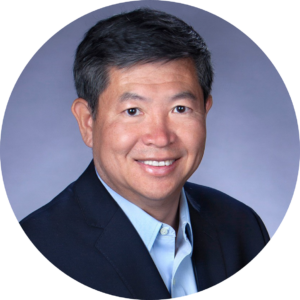
Dr. Da Ren is the founder and CEO of BioTherapeutics Solutions, an analytical solution provider for the biopharmaceutical industry. Prior to starting BioTherapeutics Solutions, he was a Scientific Director at Amgen in charge of analytical platforms and global strategy of the Multi-Attribute Method (MAM). In 2015, he led the first-in-industry implementation of MAM in the cGMP environment. Since then, MAM has been accepted by over 30 regulatory agencies around the world. Da is on the advisory board of several companies and serves multiple roles in industry-wide organizations including USP, CASSS, ASMS, and MAM Consortium. Prior to Amgen, Da was a Senior Applications Chemist at Waters Corporation. He received his Ph.D. in Analytical Chemistry from the University of Akron in 2002.
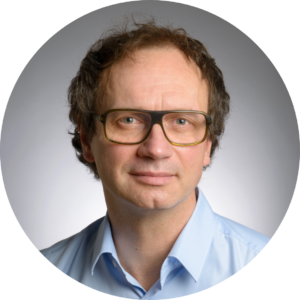
Henning Urlaub is a biochemist by training; he is a specialist in protein and RNA (bio)chemistry and mass spectrometry (MS). He received his PhD from the Free University of Berlin, Germany, in 1996 and went on to conduct post-doctoral research in the group of Reinhard Lührmann in Marburg, Germany, where he worked on pre‑mRNA splicing. Since 2004 Henning has been a research group leader at the Max Planck Institute for Multidisciplinary Sciences in Göttingen, Germany, and since 2010 also a full professor at the Medical Research Center of Göttingen University. Within the development and application of methods for MS-based proteomics, his research focus lies in structural MS-based proteomics of protein complexes, with particular emphasis on identifying and elucidating sites protein–RNA and protein–DNA contact in cells, when these sites have been fixed by crosslinking with ultra-violet light or chemical crosslinkers; this work involves the MS-based sequencing of the crosslinked entities including their sites of crosslinking. For this purpose he developed the first-ever search engine for MS-crosslinking data that allows the identification of crosslinking sites in isolated protein–RNA and –DNA complexes as well as in entire cells.

Dr. Birgit Schilling has worked at the Buck Institute for Research on Aging in the San Francisco Bay Area since 2000 as Professor and Director of the Mass Spectrometry Technology Center, specifically focusing on data independent acquisition technologies and large-scale proteome quantification. Dr. Schilling received her Ph.D. in Germany and then moved to the University of California San Francisco (UCSF) as a postdoctoral fellow. Dr. Schilling is interested in translational research and research that may aim toward therapeutic interventions to improve human aging or age-related diseases, specifically osteoarthritis, kidney injury and cancer. Dr. Schilling uses modern proteomic technologies to investigate mechanisms of aging, senescence and cancer and using this knowledge to develop biomarkers and targets for interventions.
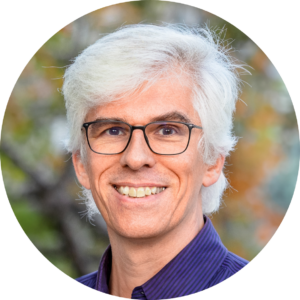
Joachim Kopka (Dr. rer. nat. habil.) is group leader at the Max-Planck-Institute of Molecular Plant Physiology (MPIMP), Potsdam, Germany. In 1998 he co-established gas chromatography-mass spectrometry profiling for applications in plant metabolomics. Since 2001, the Applied Metabolome Analysis laboratory of JK has been part of the department Molecular Physiology in combination with a role as an infrastructure group, which provides metabolomic technologies to the MPIMP and cooperating external partners. These objectives have been pursued with initial focus on GC-MS based technologies. Dr. Kopka established the Golm-Metabolome-Database (http://gmd.mpimp-golm.mpg.de/) and develops metabolomic tools extending towards flux analyses, lipidomics and secondary metabolite profiling. JK has interests in stress physiology and biotechnology of plants and photosynthetic microorganisms, such as algae and cyanobacteria. Cytosolic ribosome biogenesis is one of JK´s recently added research interests that was sparked by the discovery of cold sensitive Arabidopsis reil mutants. These mutants are deficient for the plant homologs of the yeast REI1 ribosome biogenesis protein that probes and proof-reads the polypeptide tunnel of the 60S LSU in the cytosol. Investigation of the reil mutants links to JK´s longstanding experience in plant systems analysis with focus on temperature, drought and salt stress and functional analyses of plant cold tolerance.

Bernd Wollscheid is a Professor and Head of the Institute of Translational Medicine at the Department of Health Sciences and Technology at the Federal Swiss Institute of Technology / ETH Zurich. The goal of the Wollscheid laboratory is to functionally understand the cellular surfaceome and its signaling communities as a complex information gateway connecting the intracellular to the extracellular interactome. The research team develops and applies next-generation technologies at the interface of biology, chemistry, medicine, and bioinformatics to generate unprecedented data to establish the surfaceome proteotype and its signaling interaction network. This digital proteotype data layer provides the basis for generating qualitative and quantitative surfaceome models explaining how molecular nanoscale organization influences cellular signaling and biological function.
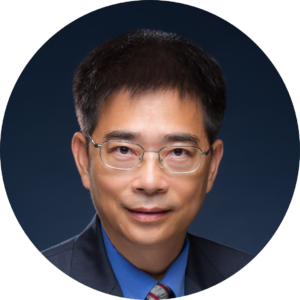
Prof. Zongwei Cai is Kwok Yat-Wai Endowed Chair of Environmental and Biological Analysis, Chair Professor of Chemistry, and Director of State Key Laboratory of Environmental and Biological Analysis in Hong Kong Baptist University. His major research interest is method development and applications of mass spectrometry for trace analysis in complex systems such as environment, food and biological matrices, with focus on metabolomics, proteomics and mass spectrometry imaging research for human health and diseases associated with environmental pollution. Prof Cai is the Fellow of Royal Society of Chemistry (FRSC, 2021) and elected member of Academy of Europe (Academia Europaea, 2023).
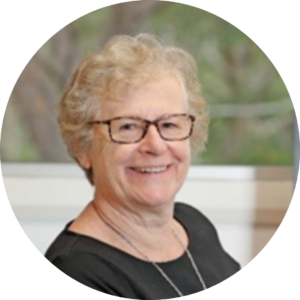
Distinguished Professor Nicki Packer, FRSC, Macquarie University, Sydney, Australia has had an extensive and varied research career in both Chemistry and Biological Sciences. She helped establish the Australian Proteome Analysis Facility (APAF) and co-founded Proteome Systems Ltd, a biotechnology company in which her group developed glycoanalytical technology and informatics tools. She has gained national and international recognition for her research in glycomics, using proteomics and bioinformatics approaches and linking it to biological functional research. Her current research is in the structure, function, informatics and application of glycans and their conjugates as molecular markers, focusing on their role in cancer, therapeutics and microbial infection. Nicki currently also holds positions as Deputy Director of the MQ Biomolecular Discovery Research Centre, CI in two ARC Centres of Excellence (NanoScale BioPhotonics and Synthetic Biology), and is a CI in the ARC Facilitated Advancement of Australia’s Bioactives (FAAB) Industrial Transformation Training Centre as well as Academic Lead of APAF at Macquarie University, Sydney. She in on the Executive Council of the Human Proteome Organisation (HUPO) and is a part-time Principal Research Leader at the Institute for Glycomics, Griffith University, Queensland. Her other achievements include producing 3 reasonably well-balanced children.
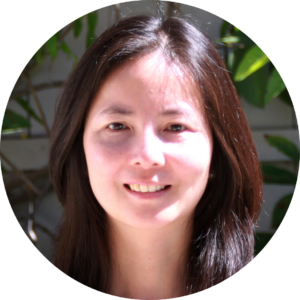
Dr. Lan Huang is a Professor of Physiology & Biophysics in the School of Medicine, University of California, Irvine. Her research focuses on developing novel, integrated mass spectrometry-based proteomic strategies to characterize macromolecular protein complexes and understand their functions, particularly those in the ubiquitin-proteasome system. During the last two decades, the Huang lab has developed a number of novel methodologies to capture, purify and quantify protein-protein interactions in living cells. She has pioneered the development of sulfoxide-containing MS-cleavable cross-linkers (e.g. DSSO), and thus established a robust cross-linking mass spectrometry (XL-MS) platform that enables the elucidation of interaction networks and structural topologies of native proteomes in vitro and in vivo. The strategies developed by her group have proven highly effective as general proteomic tools for studying protein-protein interactions and protein complexes. She has successfully translated her research findings into practical applications, receiving several patents and commercializing reagents that have made a substantial impact in the scientific community. Her lab has recently applied XL-MS technologies to clinical samples to understand protein network biology and its association with human disease.
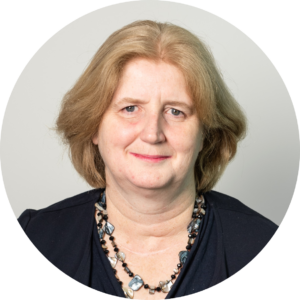
Associate Professor Ronda Greaves is the Deputy Head of Biochemical Genetics, which incorporates the Victorian Newborn Screening Laboratory, at the Victorian Clinical Genetics Services in Melbourne Australia. She holds academic appointments with the University of Melbourne and RMIT University and is a Founding Fellow of the Faculty of Science (RCPA). Ronda’s training and continued interest is in ensuring the quality of paediatric clinical biochemistry results, and has been fortunate to receive training internationally at Sahlgrenska Hospital in Gothenburg, Sweden, the Children’s Hospital (Kinderspital) in Zurich Switzerland, as well as working as a technical advisor at the National Hospital of Pediatrics in Hanoi Vietnam. This has underpinned her interest in the appropriate application of mass spectrometry assays, lean processes and change management. Ronda currently serves as: 1) consultant to the Emerging Technologies Division of the IFCC; 2) chair of the APFCB Mass Spectrometry Harmonisation Working Group; 3) member JCTLM review teams for non-peptide hormones; and 4) Associate Editor for “Clinical Chemistry and Laboratory Medicine”.

Thomas Kislinger received his MSc in Analytical Chemistry from the University of Munich, Germany (1998). He completed his PhD in 2001, investigating the role of Advanced Glycation Endproducts in diabetic vascular complications at the University of Erlangen, Germany and Columbia University, New York. Between 2002 and 2006 he completed a post-doctoral fellowship at the University of Toronto. In 2006 he joined the Princess Margaret Cancer Centre as an independent investigator. Dr. Kislinger is a Senior Scientist at the Princess Margaret Cancer Centre and a Professor at the University of Toronto in the Department of Medical Biophysics. Dr. Kislinger serves as Associate Editor for the Journal of Proteome Research. The Kislinger lab applies proteomics technologies to translational and basic cancer biology. This includes the development of novel proteomics methodologies, identification of liquid biopsy signatures and the molecular identification of novel cell surface markers.
Vaughan completed BSc(Hons) and PhD degrees in Chemistry at the University of Canterbury in 1993 and 1997, respectively. PhD research in optical spectroscopy under Dr. Bryce Williamson led to postdoctoral fellowships in laser spectroscopy with Prof. Andreas Hauser at the University of Geneva and optical spectroscopy at the University of Western Australia with Drs Terry Quickenden and Alan McKinley.
On returning to New Zealand, Vaughan received a NZ Foundation for Research, Science and Technology postdoctoral fellowship with Prof. Murray McEwan at the University of Canterbury and transitioned into mass spectrometry in late 2002. As Syft Technologies Ltd (Syft) was spun out of Murray McEwan’s lab to commercialise selected ion flow tube mass spectrometry (SIFT-MS) at a very similar time, he was effectively seconded to Syft for the three-year fellowship tenure, then became a full-time employee. He is currently Principal Scientist at Syft.
Vaughan’s focus throughout his tenure at the University of Canterbury and Syft has been on leveraging the power of gas-phase ion-molecule reaction chemistry for trace analysis of volatile organic compounds (VOCs). This extends from investigating and publishing fundamental ion-molecule reactions to developing analytical solutions for Syft’s diverse customer base. Vaughan has co-authored 36 peer-reviewed research and review articles on SIFT-MS and 12 on optical spectroscopy.
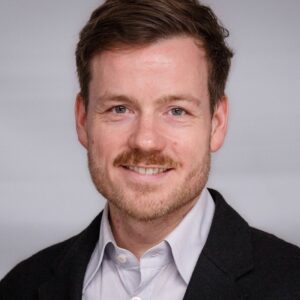
Prof. Dr. Kevin Pagel is Full Professor for Bioorganic Chemistry at the Department of Biology, Chemistry, Pharmacy of Freie Universität Berlin and guest researcher at the Fritz Haber Institute of the Max Planck Society. Research in the Pagel group is focused on the structural analysis of biological macromolecules, in particular glycans and glycoconjugates, using liquid chromatography, ion mobility-mass spectrometry and gas-phase IR spectroscopy. He received an ERC Consolidator Grant (2020) and is recipient of the DGMS Mattauch Herzog Award (2016), the ASMS Ron Hites Award (2016), the Award of the GDCh Division of Analytical Chemistry (2017) and the DRS Award for Excellent Supervision (2023).
Professor Zhang Xinxing graduated from Fudan University in 2009 and obtained his PhD from Johns Hopkins University in 2015. He finished postdoc studies at Caltech in 2018 and was promoted to a full professor of Nankai University in 2018. His research interests include mass spectrometry, design and fabrication of various ion sources, air-water interface chemistry, atmospheric chemistry, as well as the chemistry involved in triboelectricfication. He has authored over 100 papers, and received the Distinguished Young Scholar Grant of NSFC in 2023.. For more information, please visit: www.zxx-lab.com
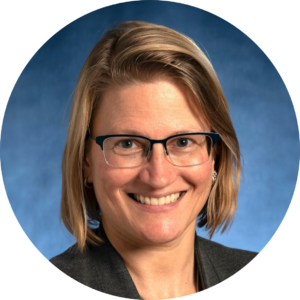
Dr. Glunde is Professor of Radiology, Oncology and Biological Chemistry at the Johns Hopkins Medical Institutions (JHMI), and the founding Director of the Applied Imaging Mass Spectrometry (AIMS) Core. Her research program focuses on cancer biology and molecular imaging of cancer. The Glunde lab combines molecular biology and cancer biology approaches with multi-scale molecular imaging to investigate and visualize molecular events that drive cancer growth, invasion, and metastasis. Since joining the faculty in 2003, Dr. Glunde has been involved in numerous research studies on cancer metabolism and molecular imaging of cancer as Principal Investigator and Co-Investigator. She has mentored more than 55 students, post-doctoral fellows, and junior faculty and published over 115 publications in the field of cancer metabolism and molecular imaging of cancer. Since 2019, Dr. Glunde also serves as the founding director of the JHMI AIMS Core, making available highly multiplexed, high throughput mass spectrometry tissue imaging technologies to faculty at Johns Hopkins and outside institutions. She has built a quickly expanding mass spectrometry imaging program at Johns Hopkins, where her team interacts with a diverse group of over 65 users, spanning multiple departments at Johns Hopkins and several institutions on the East Coast and nationwide.

Shabaz studied Chemistry at UMIST (now The University of Manchester) and obtained his degree in 1999. He then went on to work in the laboratory of Simon Gaskell within the field of biological mass spectrometry albeit the more fundamental side of the topic and defended in early 2003. He then moved to Odense (Denmark) and joined the group of Ole Jensen and worked on technology development for use in studying post-translation modifications. Here, he helped develop a method that allowed quantitative analysis of phosphorylation and its role in cellular signalling, a widely adopted method. In 2005, he moved to the laboratory of Albert Heck and continued working in the field of proteomic technologies. In 2008, he became an Assistant Professor and started his own group. In 2013, he (once again) moved and is now an Associate Professor of Proteomics in the Departments of Chemistry and Biochemistry. In 2020, he was seconded to the Rosalind Franklin Institute where he will be Head of the Mechanistic Proteomics research programme.
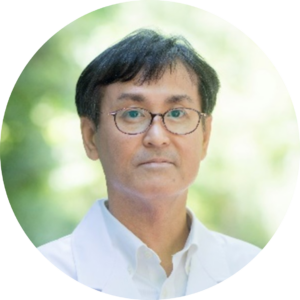
Yasushi Ishihama is a professor of Molecular Systems Bioanalysis, Graduate School of Pharmaceutical Sciences, Kyoto University since 2010. He has been working in the field of proteomics for more than 20 years. He has made contributions to this field especially by developing the basic technologies as well as by applying these tools to biology such as a first plant tyrosine phosphoproteome study and a first large-scale study on phosphorylation stoichiometry in human cells. His group also established so-called ‘one-shot’ proteomics by ultrahigh resolution monolithic silica columns to uncover proteome on a microarray scale. He has published over 240 papers, cited over 29000 times. He received the Research Award from the Mass Spectrometry Society of Japan (2011), the Award of Japanese Proteomics Society (2013), the Award of the Society for Chromatographic Sciences (2018), the Shigeru Terabe Award (2020) and the Award of the Japan Society of Analytical Chemistry (2021). He is a current president of Mass Spectrometry Society of Japan, a vice president of Asia-Oceania Human Proteome Organization (AOHUPO), a past president of Japanese Proteomics Society, and a past vice president of the Japan Society for Analytical Chemistry.
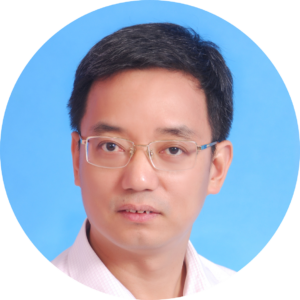
Dr. Jin-Ming Lin is a professor at the Department of Chemistry, Tsinghua University. From 1992 to 2002, he studied and worked at Showa University and Tokyo Metropolitan University, Japan. In 2001, he was selected into the “Hundred Talents Program” of the Chinese Academy of Sciences and received funding from the National Science Foundation for Outstanding Young Scholars, and in the same year, he was appointed as the professor at the Research Center for Eco-Environmental Sciences, Chinese Academy of Sciences. In 2004, he was appointed as a professor at the Department of Chemistry, Tsinghua University. In 2008, he was selected as ChangJiang Scholar Professor of the Ministry of Education, China. He is a fellow of the Chinese Chemical Society and a fellow of the Royal Society of Chemistry. His main research interesting: 1) Microfluidic chip combined with mass spectrometry for cell analysis; 2) Research on rapid detection methods of foodborne pathogenic bacteria; 3) Research on the preparation method of air negative ions and its mechanism on promoting health. He has published more than 500 research papers, applied for and authorized more than 50 invention patents, and won more than 30 academic awards. He is currently the deputy director of the Committee of Analytical Chemistry of the Chinese Chemical Society, the president of the Microfluidic System Branch of the Chinese Biophysical Society, the executive director of the Chinese Association of Analysis and Testing, the vice chairman of the Micro-nano Fluidics Technology Branch in Chinese Micro and Nanotechnology Society, the contributing editor of Trends in Analytical Chemistry, Associate Editors of J. Pharm. Anal., Chinese Chemical Letters.
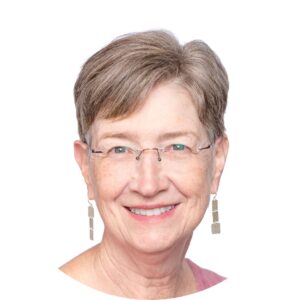
Professor Vicki H. Wysocki is an Ohio Eminent Scholar, Director of the Campus Chemical Instrument Center, and Professor in the Department of Chemistry and Biochemistry at the Ohio State University. She is Director and PI of an NIH-funded Biomedical Technology Optimization and Dissemination Center in Native Mass Spectrometry.
Dr. Wysocki received her BS in Chemistry at Western Kentucky University in 1982 and her PhD in Chemistry at Purdue University in 1987. She was a postdoc at the Naval Research Laboratory (National Research Council fellow) and joined Virginia Commonwealth University as an Assistant Professor in 1990. Dr. Wysocki joined the University of Arizona in 1996, was promoted to Professor in 2000, and served as Chair of the Department of Chemistry and Biochemistry.
Professor Wysocki served as VP Programs, President, and Past President of the American Society for Mass Spectrometry (2014-2020) and as an Associate Editor for Analytical Chemistry (2015-2022). Dr. Wysocki was appointed as the Editor-in-Chief of the Journal of the American Society for Mass Spectrometry in July 2022. Major awards include the International Mass Spectrometry Foundation’s Thomson Medal, the ACS Field and Franklin Award, the ACS Analytical Division Chemical Instrumentation Award, and the ASMS Distinguished Contribution Award.
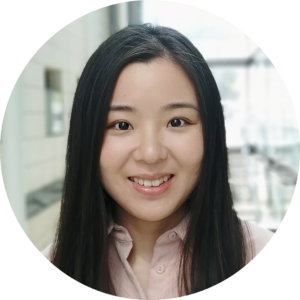
Yujia graduated in 2012 with a BSc in Chemistry from the University of Sheffield. Later, she moved to the University of Oxford to complete her MSc in Pharmacology. In 2014, Yujia joined the group of Prof. Hagan Bayley where she completed a DPhil in Chemical Biology and then undertook postdoctoral research. In 2019, Yujia received the Reaxys PhD Prize and the Dream Chemistry Award. In 2020, Yujia started her Glasstone Research Fellowship in Science and joined Magdalen College as a Fellow by Examination. In 2022, Yujia was appointed as an Associate Professor of Organic Chemistry and Tutorial Fellow at Lady Margaret Hall.
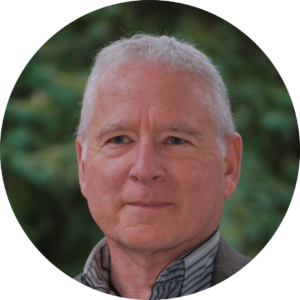
Evan Williams is a Distinguished Professor of Chemistry and Biophysics at the University of California at Berkeley, where he also serves as the Faculty Director of the QB3/Chemistry Mass Spectrometry Center. He also holds a joint appointment in Molecular Biophysics & Integrated Bioimaging at the Lawrence Berkeley National Laboratory. Professor Williams’ research group is developing and applying novel instrumental and computational techniques in mass spectrometry, tandem mass spectrometry, separations, chemical imaging and laser spectroscopy for improved molecular structure elucidation. He also uses these methods to solve problems of fundamental as well as practical interest in chemistry and biophysics. A number of different types of state-of-the-art mass spectrometers and lasers are used in these studies. He regularly teaches both undergraduate and graduate courses in analytical chemistry, chemical instrumentation and mass spectrometry. He also consults in legal cases involving chemical analysis and patent law. Recent honors include the American Society for Mass Spectrometry John B. Fenn Distinguished Contributions in Mass Spectrometry Award, the American Chemical Society Frank H. Field and Joe L. Franklin Award for Outstanding Achievement in Mass Spectrometry, the Royal Society of Chemistry Theophilus Redwood Award in Analytical Chemistry and the American Society for Mass Spectrometry Ron Hites Award. He is also a Fellow in the American Association for the Advancement of Science. He received his Ph.D. from Cornell University in 1990 and completed a Postdoctoral Fellowship at Stanford University before joining the faculty at the University of California at Berkeley in 1992.
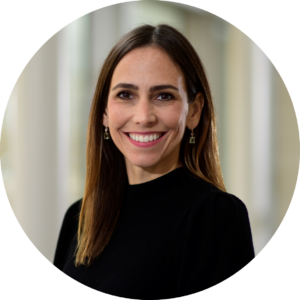
Livia Schiavinato Eberlin, PhD received her BS in Chemistry from the State University of Campinas (Sao Paulo, Brazil) and her PhD in Analytical Chemistry from Purdue University, under the supervision of Prof. R. Graham Cooks. She pursued her postdoctoral research in Chemistry at Stanford University, under the supervision of Prof. Richard Zare. Eberlin started her independent career in the Department of Chemistry at The University of Texas at Austin and then moved to Baylor College of Medicine where she is currently an Associate Professor and ViceChair for Research in the Department of Surgery. Dr. Eberlin is recognized for her innovative research in analytical chemistry, medical mass spectrometry, and cancer research. Eberlin and her team are the recipients of many honors for their research, including a NIH K99/R00 Pathway to Independence Award, Forbes 30 under 30 listing in the Healthcare category, a Sloan Fellowship, a Moore Inventor Fellowship, and a MacArthur Fellowship. Dr. Eberlin’s research program centers around the development and application of novel mass spectrometry technologies in health-related research, with a particular focus on disease detection and diagnosis. Dr. Eberlin is also passionate about mentorship, scientific education, and efforts related to diversity and inclusion within the scientific community.
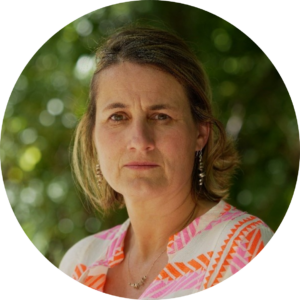
Professor Barran holds a Chair of Mass Spectrometry in the Department of Chemistry and is the Director of the Michael Barber Centre for Collaborative Mass Spectrometry and a member of Manchester Institute of Biotechnology, The University of Manchester, UK.
Her research interests include: Biological mass spectrometry; Instrument and technique development; Protein structure and interactions; Dynamic and Disordered Systems; Parkinson’s disease Diagnostics; HDX-MS; Proteomics; and Molecular modeling. She is a Fellow of the Royal Society of Chemistry and was awarded the Theophilus Redwood Award from the RSC in 2019, Researcher of the Year 2020 from the University of Manchester and the ACS Measurement Science Lectureship 2021. In 2020 she initiated the COVID-19 Mass Spectrometry Coalition and was appointed as Chief Advisor to the UK Government on Mass Spectrometry as part of their pandemic response. Perdita has had the privilege to mentor 35 graduate students through the successful completion of their PhD’s. as well as 16 postdoctoral fellows. Perdita has authored over 200 publications in peer reviewed journals which have been cited over 4000 times, by people other than her.
In 2021 Perdita founded the company Sebomix Ltd. to exploit sebum as a diagnostic biofluid with a focus on Parkinson’s Disease.

Evan Bieske completed a BSc (Hons) at the University of Queensland before undertaking a PhD in Chemical Physics under the supervision of A. E. W. Knight at Griffith University. There he developed a long-lasting obsession with the spectroscopy of molecular ions. Over his career he has obtained electronic and infrared spectra for numerous exotic cation and anion molecules and clusters using strategies combining laser spectroscopy and mass spectrometry. He obtained the first rotationally resolved infrared spectra of cation clusters (H2-HCO+, He-HN2+, Li+-H2, Na-H2+) and anion clusters (Cl–H2, Br–H2), yielding unprecedented information on interactions between ions and neutral molecules. He also developed techniques to explore the photoisomerization of molecular ions in the gas phase, focusing on molecular switches and biological chromophores (retinal Schiff base, GFP chromophore). Recently, he has measured electronic spectra of carbonaceous molecules,

Magnus Palmblad is Associate Professor and Head of Bioinformatics at the Center for Proteomics and Metabolomics of the Leiden University Medical Center (LUMC). He did his MSc in Molecular Biotechnology at Uppsala University with minors in mathematics and computer science from the University of Maryland, College Park, and received his PhD in Ion Physics at Uppsala University in 2002. After a 3-year postdoc at the Center for Accelerator Mass Spectrometry at Lawrence Livermore National Laboratory, he was appointed as Senior Research Fellow at the University of Reading’s BioCentre and later joined the LUMC Biomolecular Mass Spectrometry Unit in 2007, where he was instrumental in evolving this to the present Center for Proteomics and Metabolomics. His main research interests are in computational proteomics, including machine learning/generative AI, novel algorithms, and data analysis workflows. He has also published extensively on systematic analysis of the biomedical literature combining text mining and computational chemistry. Dr. Palmblad has served on the HUPO Council, the ABRF Executive Board and on the Editorial Boards of several journals, including currently as Associate Editor of Journal of Proteome Research.
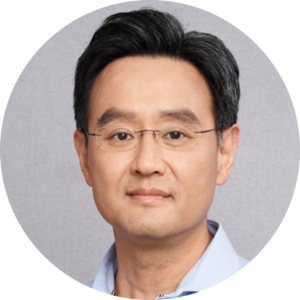
Zheng Ouyang is a Professor of Precision Instrument at Tsinghua University and the Dean of Tsinghua Shenzhen International Graduate School. His research focuses on the fundamentals in ionization and mass analysis, instrumentation for scientific studies and applications for biomedicine. He received B.E. and M.E. in Automation from Tsinghua University, M.S. in physical chemistry from West Virginia University, and Ph. D. in analytical chemistry from Purdue University. Zheng became a professor at the Weldon School of Biomedical Engineering at Purdue and then returned to Tsinghua University in 2016. He founded the Weixian College, the first undergraduate engineering college at Tsinghua. He received numerous awards including the Early Career Award from the NSF of US, Coulter Foundation Early Career Award, American Society for Mass Spectrometry Research Award, International Mass Spectrometry Society Curt Brunnée Award and Outstanding Young Scholars Award from the NSF of China. Zheng is a Fellow of the American Institute for Medical and Biological Engineering and a Fellow of Royal Society of Chemistry. Currently he serves as the Editor of the International Journal of Mass Spectrometry, President of Beijing Society of Instrumentation, Vice President of Chinese Society for Measurement, Vice President of Engineering Education Council of China Association of Higher Education, and Executive Member of Council of Beijing Association of Higher Education.
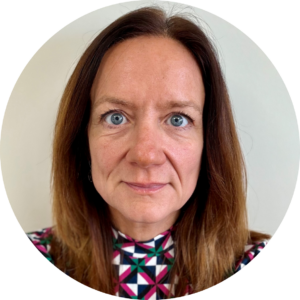
Helen J. Cooper is Professor of Mass Spectrometry in the School of Biosciences at the University of Birmingham.
She undertook her BSc in Chemistry at the University of Warwick, before going on to study for her PhD under the supervision of Peter Derrick. After her PhD, she remained at the University of Warwick as technical officer in the newly-created EPSRC national FT-ICR mass spectrometry facility. In 2000, she moved to the National High Magnetic Field Laboratory at Florida State University to work with Prof Alan Marshall. She returned to the UK in 2003 to establish an independent career at the University of Birmingham.
Helen’s research focuses on developing mass spectrometry methods for in situ analysis of proteins. She is a Director of the Rosalind Franklin Institute and Associate Editor of the Journal of the American Society for Mass Spectrometry. She is a Fellow of the Royal Society of Chemistry and winner of the 2022 Royal Society of Chemistry Theophilus Redwood Award for analytical chemistry.
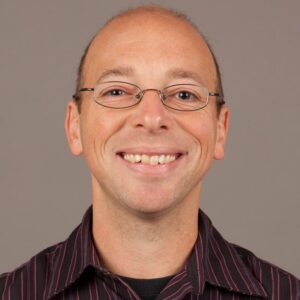
Asher Newsome received a B.S. Chem from the University of Georgia in 2005 and a Ph.D. in Analytical Chemistry from the University of North Carolina at Chapel Hill in 2009 with Professor Gary Glish. He was a postdoctoral fellow at the US FDA Center for Food Safety and Applied Nutrition with Dr. John Callahan and Dr. Peter Scholl and a contractor to US Naval Research Laboratory. Dr. Newsome is currently a Physical Scientist with the Smithsonian Museum Conservation Institute in Suitland, MD, USA.
Apart from his past researching photodissociation, food allergens, and explosives, Dr. Newsome’s current research interests center on the development of mass spectrometry methods for conservation and cultural heritage applications. He most often employs ambient MS, GCMS, and other techniques for small molecule analysis. He particularly enjoys instrument design and modification to accommodate the study of materials and objects with exceptional characteristics such as large physical size, cultural sensitivity, or unavailability for destructive sampling. He has over twenty-five publications and a patent.
Dr. Newsome co-founded the ASMS Ambient Sampling and Ionization interest group, is secretary for the Washington-Baltimore Mass Spectrometry Discussion Group, is a member of the American Chemical Society, and participates in the IPERION HS consortium.
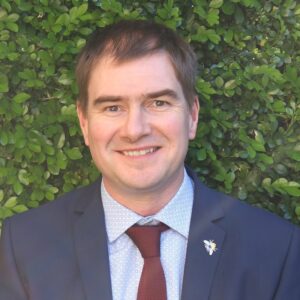
Professor Kevin Thomas is Director of the Queensland Alliance for Environmental Health Sciences (QAEHS). Kevin is an environmental health scientist with a particular interest in understanding the environmental exposures associated with contaminants of emerging concern (CECs) with the goal of protecting environmental and human health. Kevin also leads the Minderoo Centre- Plastics and Human Health at UQ and is Deputy-Director of the Australian Research Council Industrial Transformation Training Centre for Hyphenated Analytical Separation Technologies (HyTech). His current research is focused on understanding human exposure to plastics pollution and developing mass spectrometric analytical methods for characterizing plastics and other CECs, assessing community-wide health status through analysing wastewater (wastewater-based epidemiology) and establishing alternative approaches to exposure monitoring. Author of over 300 peer-reviewed papers and Associate Editor for the journal Science of the Total Environment, Kevin is a strong collaborative researcher having founded the international SCORE network on sewer biomarker analysis for community health assessment (see www.score-network.eu) and together with colleagues has recently launched InSpectra– A platform for identifying emerging chemical threats.

Chris is a Chemistry Professor at Vancouver Island University (Nanaimo, BC) as well as co-director of the Applied Environmental Research Laboratories (AERL). He maintains an active international collaboration network, including the tenure of visiting professorships during sabbaticals in Germany and Italy. He has been awarded the Distinguished Researcher Award at VIU, a Distinguished Chemistry Alumni Award at the University of British Columbia. The AERL conducts pure & applied research, with a central theme the development of direct, online mass spectrometry methods for measurements in complex samples. This has lead to numerous advances for direct environmental, industrial and clinical/bioanalytical measurements. The AERL’s development of mobilized direct mass spectrometry platforms for geospatially resolved, quantitative environmental measurements as well as numerous hyphenated methodologies has transformed capacity for in field chemical determinations. Chris’ current research interests continue to involve the development of direct mass spectrometry instrumentation and their applications for direct, real-time chemical measurements. This includes high precision systems and approaches for improved environmental monitoring, clinical diagnostics, forensic testing, and the development and implementation of rapid, on-site drug testing strategies for use in the opioid overdose crisis.
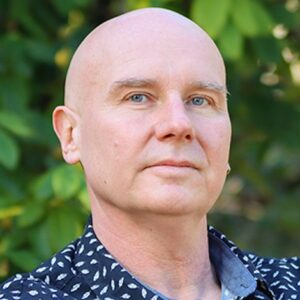

Roger Summons is Schlumberger Professor of Geobiology Emeritus in the Department of Earth, Atmospheric and Planetary Sciences at the Massachusetts Institute of Technology. He is a biogeochemist who studies molecular and isotopic fossils to illuminate the history of life on the Earth. Summons attended the University of New South Wales at the Wollongong University College, now the University of Wollongong, where he was awarded B.Sc. (1969) and Ph.D. (1972) degrees in chemistry. After postdoctoral work in the Genetics Department at Stanford University, he held positions at the Australian National University and Geoscience Australia before joining MIT as Professor of Geobiology in 2001. For ten years he led the MIT ‘Foundations of Complex Life’ team of the NASA Astrobiology Institute. In 2003, he received the Alfred Treibs Medal of the Geochemical Society, and in 2008 he was awarded the Alexander von Humboldt Foundation Research Award. He is a fellow of the Australian Academy of Science, the American Geophysical Union, The Royal Society of London, the American Academy of Microbiology and is a member of the National Academy of Sciences.
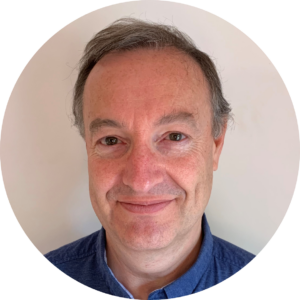
Jean Armengaud studied biochemistry and biophysics at the University of Grenoble, France. After obtaining his PhD, he worked for four years as a post-doctoral researcher at the Helmholtz Center for Infection Research (GBF) in Braunschweig, Germany, under the direction of Professor Kenneth Timmis, where multi-omics approaches to environmental microbiology were developed. He then learned the basics of mass spectrometry at the Structural Biology Institute in Grenoble, and joined CEA’s new biology center in Bagnols-sur-Cèze in 2000. It was here that he founded the ProGénoMix platform dedicated to multi-omics and meta-omics, which is a node of the French national network of excellence in proteomics ProFI.
Jean Armengaud (https://orcid.org/0000-0003-1589-445X) specializes in mass spectrometry for biology and omics, with a particular focus on proteogenomics and metaproteomics. He is co-author of over 300 scientific publications. His group develops proteomic technologies for typing microorganisms and viruses, improving the interpretation of large datasets from a wide range of animal and plant models, and making metaproteomics applicable as a diagnostic tool. Its aim is to contribute to a better understanding of the functioning of complex biological systems, and to exploit this knowledge for medical and environmental purposes.
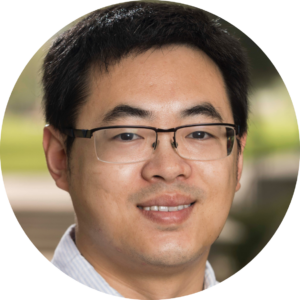
Dr. Haofei Zhang is an associate professor in the Department of Chemistry at University of California, Riverside, USA. He obtained his Ph.D. from University of North Carolina, Chapel Hill under the guidance of Drs. Richard Kamens and Jason Surratt. Later, he joined Lawrence Berkeley National Laboratory and University of California, Berkeley as a Dreyfus postdoc fellow to work with Drs. Kevin Wilson and Allen Goldstein, before becoming a faculty member at University of California, Riverside in 2017. His research focuses on understanding the chemical mechanisms that lead to atmospheric oxidation of volatile organic compounds, formation of secondary organic aerosols, and the chemical evolution of organic aerosols. His group uses mass spectrometry techniques for chemical characterization of gas- and particle-phase organic species and kinetic modeling to understand the chemical mechanisms. His recent research interests include chemical mechanisms of organic aerosol during oxidative aging in the atmosphere, chemical evolution of biomass burning-derived volatile organic compounds and brown carbon formation, aerosol phase state’s impact on biogenic secondary organic aerosol formation, and multiphase chemical evolution of organic compounds in indoor surfaces.
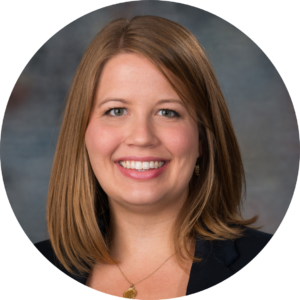
Melanie Downs is an Associate Professor affiliated with the Food Allergy Research & Resource Program in the Department of Food Science and Technology at the University of Nebraska-Lincoln. Her research primarily focuses on the proteomics of allergenic foods, including the identification, characterization, and detection of food allergens using mass spectrometry. To this end, Dr. Downs’s research program employs MS methods to investigate how food processing operations impact allergen proteins. In addition, Dr. Downs has led the development of targeted MS methods for the quantification of food allergen proteins in complex, processed food matrices. Dr. Downs also has expertise in the development and evaluation of immunoassay methods for food allergen analysis and the assessment of food allergen controls. In addition to research, Dr. Downs also works with the food industry on a number of aspects of food allergen management, including development of allergen control programs, validation of allergen preventive controls, and application of food allergen detection methods.
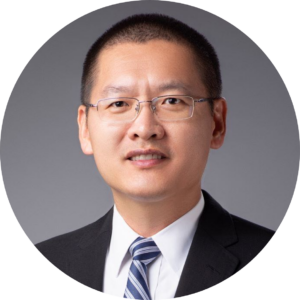
Prof. Xiaopeng Li is Tencent Founders Professor at Shenzhen University, China. He received a B.S. degree in chemistry in 2004 from Zhengzhou University, then a Ph.D. in chemistry from Cleveland State University in 2008. He then was a Postdoctoral Fellow at University of Akron. In 2012, he started his independent career as Assistant Professor at Texas State University, then moved to University of South Florida in 2016, and was promoted to Associate Professor in 2019. In 2020, Dr. Li returned to China and joined Shenzhen University. His major research interests include mass spectrometry and supramolecular chemistry. Dr. Li has authored or coauthored over 250 research publications. Dr. Li is well recognized as a cutting-edge practitioner of advanced mass spectrometric techniques through collaborations with more than 100 research labs in the world, and received broad recognition in the field of supramolecular chemistry and mass spectrometry. Dr. Li was awarded 2019 Cram Lehn Pedersen Prize in Supramolecular Chemistry from the Royal Society of Chemistry. The other awards and achievements include Cottrell Scholar Award (2015), CAPA Distinguished Junior Faculty Award (2017), Fellow of the Royal Society of Chemistry (2017), the National Science Fund for Distinguished Young Scholars (2021), and Chinese Chemical Society Lectureship Award for Creative Young Supramolecular Chemists (2021).